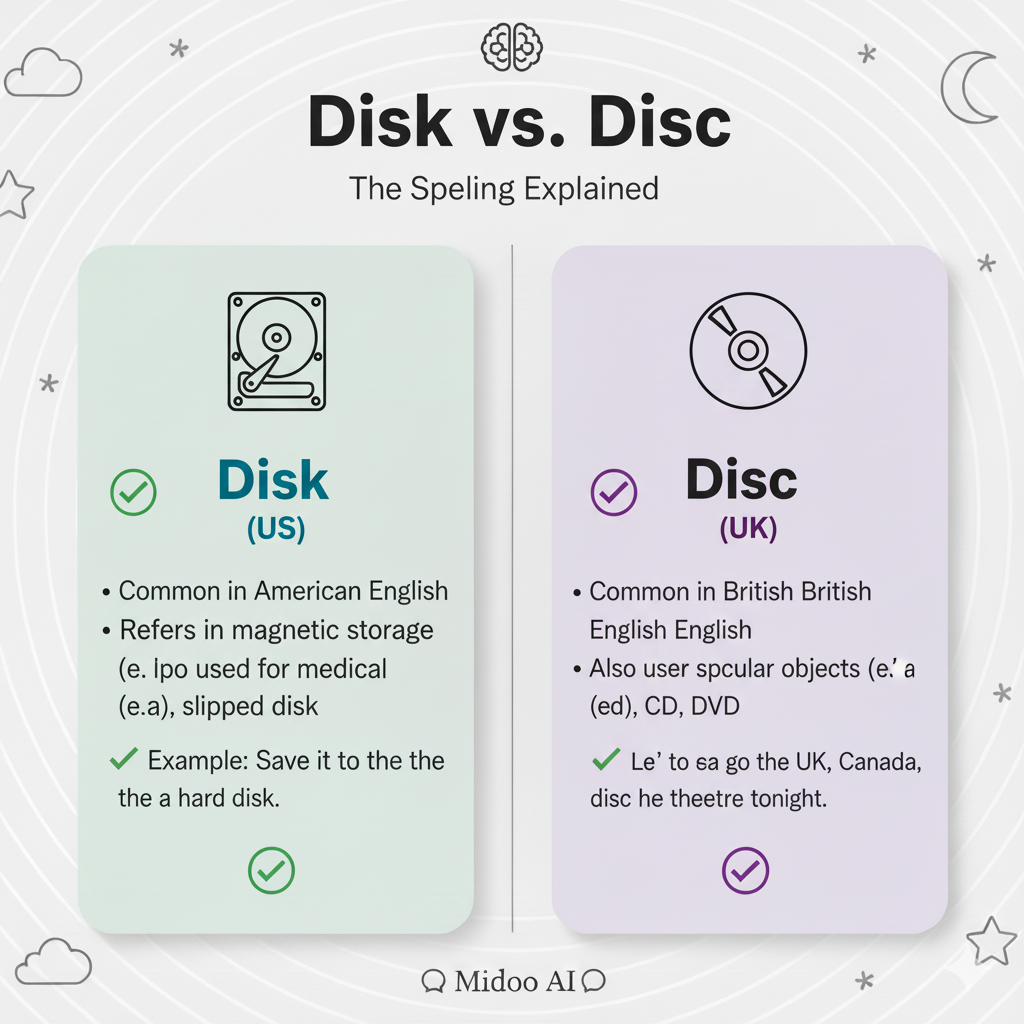Disk vs. Disc: What’s the Difference in Spelling and Meaning?

English learners often get confused by the words “disk” and “disc.” They look almost the same, but their usage depends on context—and sometimes even on region.
At Midoo AI, we often hear students ask: Is there really a difference, or are they the same word? The answer is: both spellings exist, but they’re used in different ways. Let’s break it down clearly.
Disk – Computers and Technology
“Disk” is the preferred spelling in American English, especially in the world of technology. It usually refers to data storage devices.
Examples:
- I saved the file on my hard disk.
- The computer has two disk drives.
- Disk space is almost full.
- The floppy disk is an old form of storage.
- The program is stored on a compact disk.
Tip: If it’s about computers or storage, especially in American English, use disk.
Disc – Music and Medicine
“Disc” is the spelling more common in British English, and it’s also widely used in certain fields like music and medicine. For example, you’ll see “compact disc (CD)” and “spinal disc.”
Examples:
- She bought a new compact disc.
- The spinal disc can cause pain if damaged.
- The disc contains bonus tracks.
- They collected rare vinyl discs.
- Doctors studied the disc injury carefully.
Tip: If it’s about music (CDs) or medical terms, go with disc.
Quick Way to Remember
- Disk → American English, computers 💻
- Disc → British English, music & medicine 🎵🩺
👉 Think of disk = data, disc = CD or spine.
FAQ
Q: Are “disk” and “disc” pronounced differently?
A: No, they sound the same. The difference is only in spelling and context.
Q: Is “compact disk” ever correct?
A: Technically, it should be “compact disc (CD)”, since that’s the official name.
Q: Which spelling should I use in professional writing?
A: If you’re talking about computer storage, use disk. If you’re writing about music or anatomy, use disc.
Q: Why does English have both spellings?
A: The variation comes from American vs. British spelling preferences, and over time, different industries adopted one form over the other.